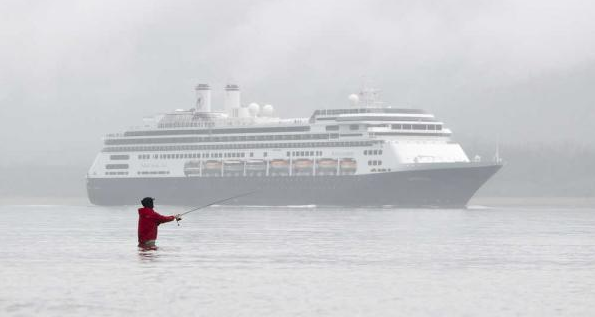PORTLAND, Maine — The United States is trying to broker an agreement between a host of nations to prohibit unregulated fishing in the international waters of the Arctic Ocean.
Such an agreement would be binding and include more countries than a non-binding agreement that the U.S. entered into with Norway, Denmark, Russia and Canada last year to avoid fishing in the area.
Adm. Robert Papp, the U.S. special representative for the Arctic, said a binding, multinational agreement would prevent fishing in the Arctic high seas before scientists can determine what is sustainable. He said the issue is especially important as Arctic ice melts, making the area more open to potential commercial fishing.
“We don’t want people fishing in there until we have the science of what’s happening,” Papp said. “It’s a pre-emptive effort to be able to sustain fisheries into the future.”
The U.S. would like to get nations such as China, Korea, Japan and members of the European Union on board with the fishing shutdown, Papp said. He estimated that such an agreement is most likely a couple of years away.
The issue of Arctic Ocean fishing was one of many Arctic issues discussed this week at a diplomatic meeting of the Arctic Council’s Senior Arctic Officials in Portland, Maine, that ended Thursday.
Arctic fishing also is on the radar of environmental organizations, such as The Pew Charitable Trusts, which has argued for a binding agreement signed by many nations to shut down fishing. Pew has called the current non-binding agreement “laudable” but also said a broader deal is needed because unregulated fishing could do damage to the Arctic Ocean’s ecosystem as waters continue to warm.
The U.S. State Department said last year that the non-binding agreement, signed in Oslo, acknowledged that commercial fishing in the central Arctic Ocean — an area bigger than Alaska and Texas combined — is unlikely to happen soon. But it also acknowledged that the reduction of Arctic sea ice and the limited scope of scientific knowledge about marine life in the area make it necessary to prevent unregulated fishing.
Signers agreed not to fish in the area until international fishing management measures are in place for the Arctic’s high seas. More than 200 species of fish thrive in the Arctic, some of which have commercial value, such as the Arctic cod.
—
Read more news:
‘There’s no fighting back’: Hoonah hunter recalls being in the grip of a brown bear

